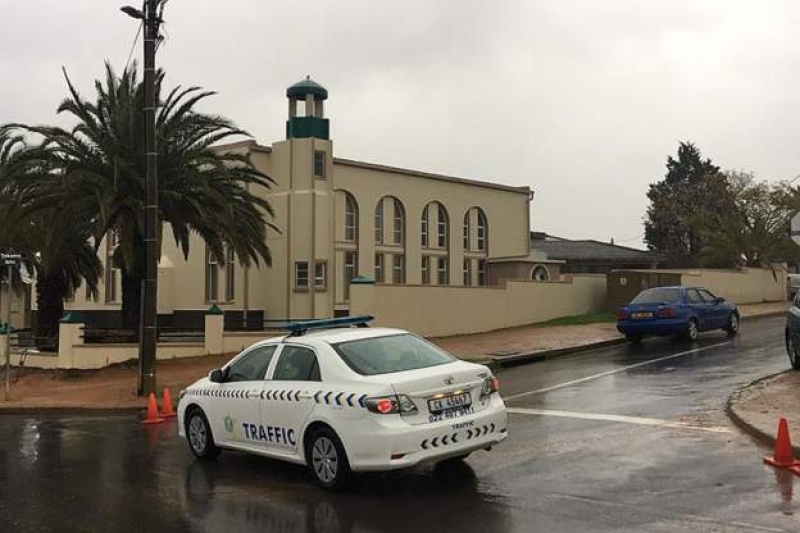
His name was Prince Anthony Opoku Acheampong. He was a 70 year old man. He was someone’s elder and loved one. He is now a corpse. Rejected by hospital after hospital due to lack of beds; from the Adabraka branch of C&J Hospital, Korle Bu Polyclinic, the Korle Bu Teaching Hospital, Police Hospital, Trust, Ridge Hospital and finally Lekma Hospital – he would finally die in his car.
For days, across media we have listened to stories by Ghanaians about their loved ones and the myriad ways in which Ghana’s crisis of a health care system has speeded up death due to deficits – of beds and of quality health care.
Prince’s emergency is the latest of a series that have hit the headlines.
We have wailed as Adolf Lawson, a father who, in July of 2017, lost his 21 year old daughter due to Accra based Ashongman Hospital’s refusal to give her blood – even though he and his daughter were both blood donors. He ran from Ashongman to Amasaman hospital; they had no blood. It was on to Achimota hospital to get that blood. Finally, he got it. By the time he got back, his daughter – Sophia Lawson, a level 300 student at Catholic University – was dead.
We have wailed as Sefakor, a mother, whose baby, Prosper, had his oxygen supply devastatingly cut off due to a lack of funds – a mere GhC533. That was in April this year at St. Gregory’s Hospital, Kasoa in the Central Region.
We have wailed at this wasted loss of life. We must shift our lens to discuss the particular wahala of this issue.
The ‘wahala’ is that it has been called ‘No Bed Syndrome.’
Is ‘No Bed Syndrome’ really a syndrome? Or is it the accumulated crises of poor quality health care, a failure by successive administrations to strengthen and expand our healthcare infrastructure with a specific lens of the needs of a growing capital city population?
It is not an actual syndrome; it is a story we have created as a frankly inadequate explanation for the utter neglect of this sector – even as politician after politician articulates how they will better resolve this crisis.
Ghana’s health care is a living horror story. There is no comfort in repeating this truth.
This latest medical scandal is about the challenges with seeking emergency care.
One specific issue is how we define ‘emergency’.
We are an Oga nation. ‘Ogas’ are big men and big women. They have wealth, power, and influence and are often recognizable. Ogas are not subject to the treatment, systems, restrictions faced by millions of regular Ghanaians. With that in mind, the question is how are medical facilities defining emergency? Is it about the seriousness of the patient’s medical condition showing up at their facilities requiring treatment – or is it about the status of the person showing up?
This is a valid question. It occurred to me as I listened to Mr Kpemka.
With the ‘no bed syndrome’ dominating our headlines, Deputy Attorney General Joseph Dindiok Kpemka, an MP for Tempane shared his own story of loss. On the Parliament floor, he shared how he “drove for seven good hours” trying to find a hospital bed for his sick wife. He finally contacted the Ridge Hospital director who managed to secure him a bed. Sadly his wife would die the following day.
The point here is that a bed was found in the same hospital in which there was no bed. Was it found because someone had overlooked its presence or was it because this man was able to use his influence and contact a hospital director? So the hospital did not seemingly respond to the emergency presented by this gentleman’s wife’s need for treatment – they responded to his status.
This is the too often unspoken discussion regarding healthcare. It should be part of the current scrutiny and discussion regarding the crisis of emergency care that is a decade old and currently without resolution.
Emergency care implies that all emergencies are treated the same. Clearly that is not the case in Ghana. This must be part of assessing our medical failures in this space.
There are only 55 ambulances in Ghana. This is part of our emergency deficit. We learned this lack of beds is a crisis 10 years in the making. However when politicians were campaigning to win votes to secure power, monies was found and paid to brand 116 metro mass transit buses in order to help secure victory. That was back in 2016 and a cool GhC3.65m was spent. The scandal would claim the resignation of the then Transport Minister and a public outcry. What medical equipment could have been secured with this same money?
The response to the call to build more medical structures, strengthen health care facilities is so often a lack of funds. This particular deficit suddenly disappears when politicians need money to boost campaigns to secure votes.
This is a question too of urban planning.
Accra is a city with more and more luxury buildings. There are new hotels for those with the wealth and means to stay in luxury. Drive around Accra and spot unfinished buildings, languishing unused and unoccupied. In the midst of this sprawling metropolis, a 70 year old man finds neither care, nor respite.
For local MPs and indeed the Mayor – whose duty is to serve the citizens of a city- is it not past time for a dedicated emergency facility in Accra with trained personnel to ensure such an incident never occurs again?
Focus on consequence is valid. It is making headlines because of the seeming callousness of imagining an elder moving from hospital to hospital desperately seeking care and finding none.
We have had multiple discussions regarding deficit of care by both nurses and doctors. We will sadly – but necessarily – revisit those discussions. They are usually triggered by loss of life or horror treatment in tragic and avoidable circumstances. We have regularly lamented loss of life due to lack of care, neglect, incompetence or a disregard for life and a privileging of profit.
Cumulative contradictions arise from multiple crises and they dominate our health sector.
Senior politicians flying out of Ghana to get health care abroad means their privilege protects them from the horrors facing those they represent. It has been said often, it bears repeating – we the citizens of this nation must demand an end to politicians escaping this nation to be treated in other nations that have created a functioning health care institution.
The syndrome that afflicts us is not a lack of beds; it is the lack of will to change what is absolutely changeable about our health care system.
Source : Esther Armah, International Journalist and Lecturer at Webster University


































